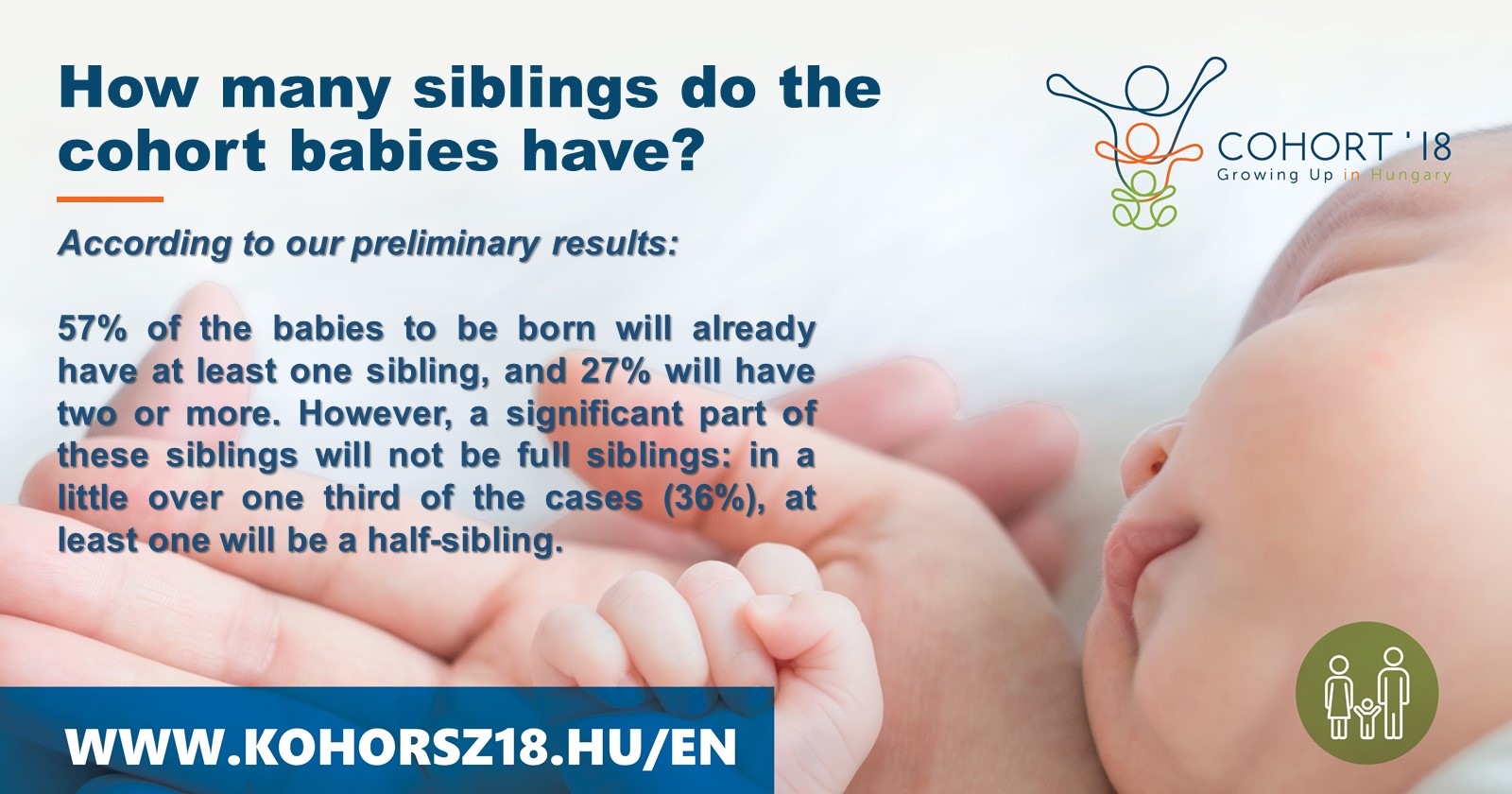How many siblings await the birth of the cohort babies?
In the first questionnaire for the mother in the seventh month of pregnancy, we inquired about the siblings of the child to be born. How many children had the mother and the father have to that point, and are these both of theirs or come from earlier relationships? Preliminary results based on the first 1000 answers indicate that 57% of the babies to be born will already have at least one sibling, and 27% will have two or more. However, not all of these siblings are “traditional” siblings, there are several half-siblings, children from a former marriage of the father, for example. One fifth of the babies with one sibling will have a sibling with whom he or she shares only the father or the mother. Among those with two siblings, 43% will have a half-sibling, and this rate goes up with the increase of the number of siblings.
If we disregard the number of siblings the cohort baby to be born will have, then we can say that in about two third of the cases (64%), the baby will have “full siblings” only. In about every fourth case (23%), the baby will not have a traditional, full sibling at all, only a half-sibling or half-siblings (including children from earlier relationships of the mother or the father). In 13% of the cases, the baby will already have at least one half-sibling and at least one full sibling as well.
These results indicate that the increased likelihood of partnerships breaking up and forming anew significantly increase the importance of children born from earlier partnerships in Hungary, especially in the case of large families. For example, the majority of women having their fourth or more child has her children born from more than one father.

